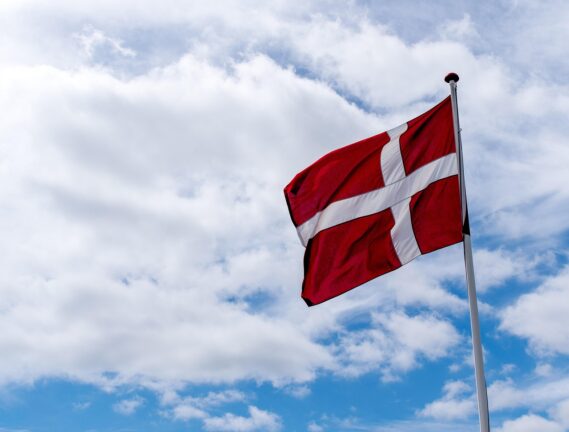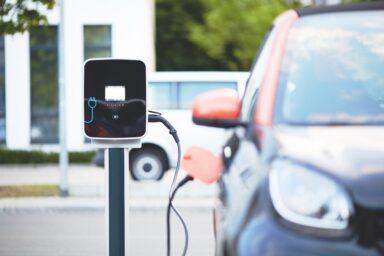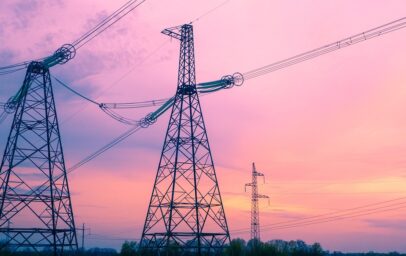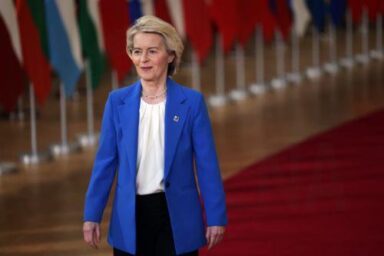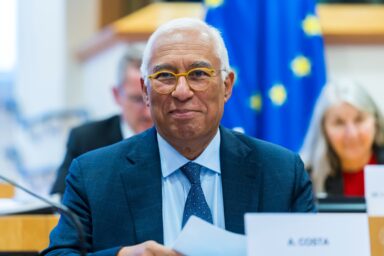Good-bye Warsaw, hello Copenhagen. As Denmark takes the Presidency of the Council of the European Union from Poland, expect a sharper focus on security and climate—as well as a markedly robust push for integration.
The Danish EU Presidency is to work for a “strong and resolute EU that takes responsibility for its own security and for strengthening its competitiveness“, Denmark’s government says in an official statement. “This calls for the EU to match words with action and deliver on the challenges it faces. The green transition is essential to building a more secure and competitive Europe,“ the document reads.
If you think this is another boilerplate parade of clichés, and wonder why you are still reading—think again. Copenhagen’s turn at the helm will testify to a rapidly changing mood at the one-time bastion of Euroscepticism.
At a lively European Policy Centre event in Brussels in June, Carsten Grønbech-Jensen, Denmark’s ambassador to the EU, laid out his country’s priorities for the upcoming EU presidency. He championed the EU’s security and competitiveness agenda while elevating the green transition to the top of the list.
You might be interested
Engaged, but cautious
Mr Grønbech-Jensen described the geopolitical and economic landscape with a touch of drama, pointing to adaptability as critical for the presidency’s success. Prioritising EU security and competitiveness, he rallied support for more defence spending, backed robustly by the ReArm Europe initiative. Assertively discussing financing avenues, he flagged the potential for EU common debt, hinting at possible defence targets revamps at the Nato summit.
In the realm of economic security, Denmark is slashing strategic dependencies on oil, gas, and microchips, all while ramping up renewable energy. Mr Grønbech-Jensen supported the “de-risking, not decoupling” approach to relations with China—a wink at staying engaged yet cautious.
Denmark’s ambitions embrace a beefed-up competitiveness agenda, inspired by the Letta and Draghi reports. Mr Grønbech-Jensen’s mantra? Simplify. Cutting through bureaucratic red tape—while boosting legal clarity for businesses—takes centre stage. He targets the EU’s internal market fragmentation, spotlighting energy and infrastructure upgrades.
Security and green transition among top priorities
Facing slow progress on the Capital Markets Union, Mr Grønbech-Jensen acknowledged the EU’s systemic juggling act. He nudged member states to model Denmark, Sweden, and the Netherlands, where hefty pension funds keep the real economy bustling.
Priorities of the Danish Presidency:
- security and competitiveness: Higher defence spending and new financing
- green transition: Lead COP30 prep and chase the European 2040 climate target
- Economic Security: Cut resource dependencies and go full throttle on renewables.
- crisis readiness and infrastructure: Spotlight on submarine cables’ critical role
- internal market & energy: Turbocharge grid connectivity and investments
- Capital Markets Union: Push for alignment and investments via pension fund muscle.
On the climate front line, Denmark considers the 2040 climate target publication a landmark event. Migration remains a call to arms, demanding fresh solutions and ongoing returns directive talks. Though not a standalone theme, digital policy is Denmark’s secret sauce for security and competitiveness.
Putin flipped the script
Denmark’s pro-EU sentiment sings a new tune, once thought improbable. In 2016, a fair share of Danes eyed an EU exit referendum, echoing British scepticism. Apprehensions over sovereignty erosion stirred this cautious tango with Brussels. However, external threats, namely Russia’s aggression, flipped the script. Defence partnerships soared as Denmark ditched opt-outs after Moscow’s invasion of Ukraine. A poll published this past March in Danish newspaper Berlingske found that 92 per cent of Danes believe Denmark should prioritise European security over its alliance with the US.
Prime Minister Mette Frederiksen’s May exit from the ‘frugal four‘ informal grouping of fiscally hawkish member states then sealed the country’s newly awakened European commitment. It is difficult to overstate the magnitude of the change: in 2014, 74 per cent of Danes were against the idea of a federal union, more than double the EU average of 34 per cent.
Tak, Donald!
The turning tide has a face, too. It belongs to Denmark’s Europe minister, Maria Bjerre. As recently as 2019, the lady who is today‘s EU Council’s President-in-Office was running her prosperous law firm—and would not as much as think of running for office.
Enter Donald Trump and his covid-19 policies—and everything changed. “Trump made her turn to politics,“ wrote Nordjyske Stiftstidende, her local newspaper in Northern Jutland. “There are, to put it in a light way, new winds blowing from the US and I think this has caused the pro-European attitude from us,” Ms Bjerre told The Parliament Magazine.
We know that we have to have more common regulation in order to be stronger together. – Marie Bjerre, Denmark’s Europe minister
“We know that we have to have more common regulation in order to be stronger together,” she concedes, embracing a no-nonsense approach in Denmark’s EU relations. Mr Trump’s not-so-subtle overtures over Greenland helped cement the Danes’ pro-European shift. Formerly sceptical of EU labour reforms, fearing disruption to their national model, the country now embraces collective thinking as a broader necessity.
Punching above its weight
Denmark’s internal politics march in step with this broader strategy shift. Instituting Ms Bjerre as a permanent European Affairs Minister (the role used ot be temporary in the past) spells dedication to deeper EU engagement, strengthening Denmark’s legislative influence.
As presidency dawns, Denmark readies itself to punch above its weight, overcoming traditional limitations. Tackling sweeping European issues like defence, climate policy, and migration, Denmark leads the charge for collaboration. “All the things we’re struggling with in Denmark, our defence—that we’re not capable of defending our own country—we can’t do all these things without co-operating together,” Ms Bjerre notes.
Copenhagen, once distinctly lukewarm, now spearheads conversations, such as those about migration (its stringent policies used to raise many an eye in Brussels). “We have a strong stand on many of these agendas,” Ms Bjerre concedes. The novelty is, Denmark now steps up to fortify European unity, seeking to finalise the transformation of its relationship to Europe from scepticism to stewardship.
